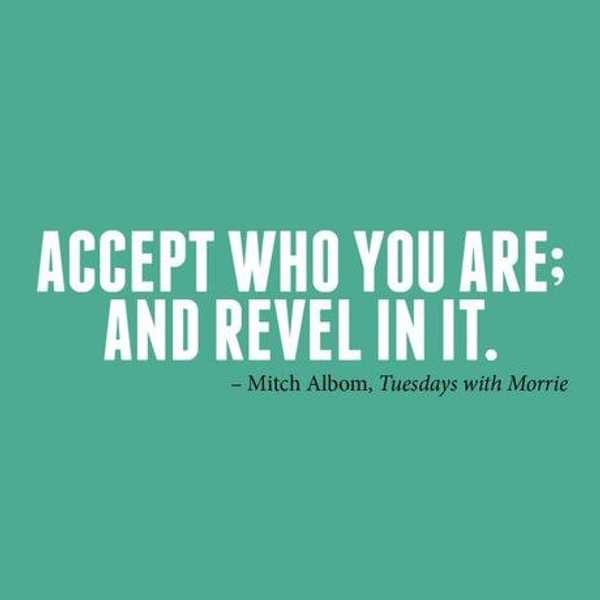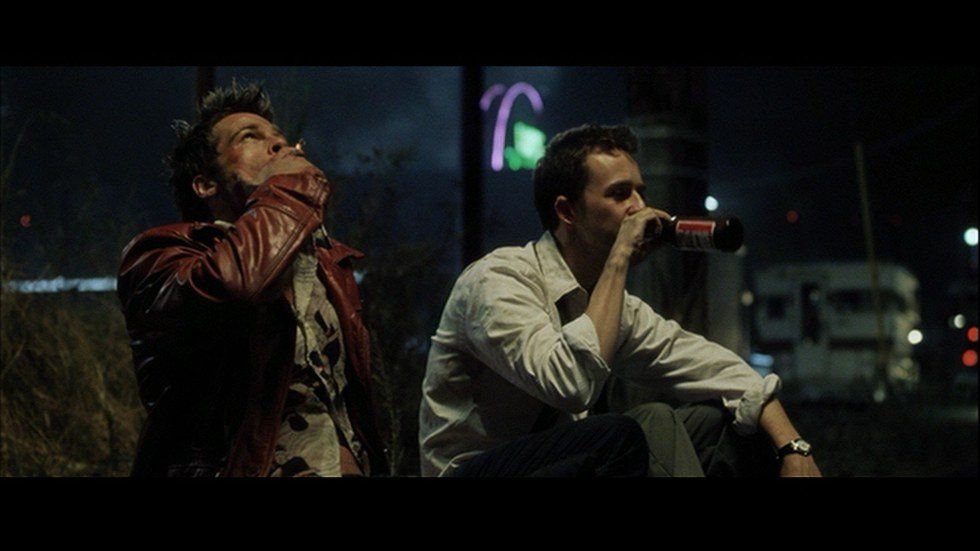The first rule of "Fight Club?" You do not talk about "Fight Club." Second rule of "Fight Club?" You DO NOT talk about "Fight Club." So why now, 16 years after the movie’s release, are people still talking about "Fight Club?" "Fight Club" is a movie that bombed at the box office, but has since grown into one of the most popular movies of all time. When most people think of this film, violent imagery and a typical “guy’s movie” are what come to mind. If this is all "Fight Club" is, then why is it one of the most popular, analyzed, and discussed movies of our generation? Digging deeper into this movie, it is clear that the main point is not actually violence or fighting. "Fight Club" is admired for its characterization and its overall theme of America’s obsession with both consumerism and money.
In a list of the 100 Greatest Movie Characters put together by "Empire Online," "Fight Club's" Tyler Durden (played by Brad Pitt) comes in at number eight, beating out iconic movie characters like Harry Potter, E.T., Luke Skywalker and Rocky Balboa. What makes Tyler Durden such an interesting and unique character is that he technically does not exist. The nameless narrator/main character of the movie (played by Edward Norton), works for an automobile company and lives a very routine life, dictated by the products that he owns. He suffers from insomnia and discovers that the only remedy that can cure him is attending support groups and pretending to have illnesses he does not actually have. He meets another “faker” by the name of Marla Singer (Helena Bonham Carter) in one of his support groups, who basically ruins his life and becomes his enemy. On an airplane coming back from a business trip, he meets Tyler Durden, who is a soap manufacturer and salesman. He has a very eccentric personality. When the narrator returns home, he finds that his condo has been blown up, so he calls his new friend Tyler who invites the narrator to stay in his home, which is abandoned-looking and falling apart. The two men begin fighting outside, and that is how their fight club is born.
Tyler Durden and the narrator both have very opposing personalities. Matthew Briggs of Colorado State University describes the characters by saying, "'Fight Club' challenges the typical American consumer identity by creating two contradicting characters. Jack starts out as a consumer defining his life by possessions, while Tyler lives his life on his own terms” (Briggs). First of all, Tyler is romantically involved with the narrator’s enemy, Marla. Second, Tyler is a very charismatic leader who can affect and control a group of men in an almost cult-like fashion, while the narrator is a very anxious person. Thirdly, Tyler is a character who is very anti-consumerist and basically an anarchist. Garin Pirina of "Esquire Magazine" says, “Tyler Durden exemplifies what happens when you take matters into your own hands and try to change the world” (Pirina). The narrator, on the other hand, has to own every possible new product that comes out as a way to fit in and be who society tells him he is supposed to be. The narrator would sit in his condo flipping through IKEA catalogues and ask himself, “What kind of dining set defines me as a person” (Briggs). In what goes down as one of the best movie plot twists of all time, Tyler is actually the narrator’s split personality, and they were the same person all along. The narrator was even responsible for blowing up his own condo.
Consumerism is simply defined by Miriam Webster Dictionary as “the belief that it is good for people to spend a lot of money on goods and services.” America is very clearly a capitalist society that is driven by its consumers. While many people have the misinterpretation that "Fight Club" is a movie about men fighting each other, they actually have it wrong. The real theme of "Fight Club" is consumerism, which is what is really being fought in this film. Consumerism is challenged in "Fight Club" in many direct and indirect ways. Anna Gragert of "Hello Giggles" points out an “Easter egg” in the movie that many viewers may have missed: “In several interviews, David Fincher (the director) has mentioned that a Starbucks cup can be spotted in literally every single frame of his movie” (Gragert). Fincher was poking fun at America’s addiction with expensive coffee all the way back in 1999, almost as if he could predict the future. The main reason for the narrator’s downfall in "Fight Club" was his obsession with materialistic goods and the consumerist lifestyle he lived.
Matthew Briggs describes the narrator’s significance, explaining, “[The narrator] represents the stereotypical American and through his character, the viewer can relate to and then question his/her own consumer identity. While the degree of consumer self-identity will range from person to person, most everyone has some sort of one” (Briggs). When he “cracked,” his split personality emerged as someone very opposite who was against materialism and rebelled from it in any way possible. Briggs describes Tyler Durden, saying, “Tyler represents an escape from that self-identity as he questions many of the consumer values Americans hold dear” (Briggs). Tyler Durden is a rebel who is far from the typical materialistic American. He lives life up to his own standards, and does what he wants. This is the reason that he is so charismatic and able to draw in so many followers.
Toward the end of the movie, there are members of Durden’s “cult” all around the globe. The men of Tyler Durden’s fight club started a series of protests which they called Project Mayhem, that attempted to take down corporate America. Garin Pirina of "Esquire" quotes Tyler Durden, saying, "'We've all been raised on television to believe that one day we'd all be millionaires, and movie gods, and rock stars. But we won't,’ Durden says. ‘And we're slowly learning that fact. And we're very, very pissed off.’” He then described Project Mayhem’s relevance to current day by comparing it to modern day protests like the Occupy Wall Street movement. He said, “They're willing to go to excessive measures to have their voices heard, and that's what Fight Club and Occupy Wall Street evolved from — except OWS used mostly peaceful protests to get their points across” (Pirina).
The United States is a country that places an enormous value on finances. Without the right amount of money, it is not possible for an American to prosper and experience success. Many Americans are buried over their head in debt, and Project Mayhem decided to take these ideals down by blowing up credit card buildings. Michael Suede of "Libertarian News" says, “In case you forgot the plot, ultimately it’s about blowing up all the credit card buildings in order to eliminate the debt record. If our debt equals money world, such an event would not only destroy the debt record, it would also destroy the money supply” (Suede). The ultimate outcome of the anti-consumerism movement of Tyler Durden’s cult-like following was to take down the financial giants in the country and save the average person from their crippling debt.
Deep down, the narrator of "Fight Club" sees through the ideals of corporate America and wants to rise above them; he just doesn’t know how to until he is introduced to Tyler Durden. If he is supposed to represent “everyman,” then what does that say? Perhaps everyone has a Tyler Durden inside of them and is able to rise above the consumerist culture in their own way, just perhaps a less extreme way that does not involve blowing up buildings or causing mayhem. The way that "Fight Club" is able to get viewers to think and to challenge what they are accustomed to is what made it the classic that it became.




















